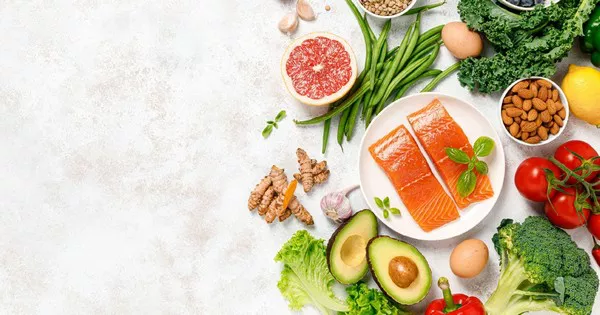Avocado, a creamy and versatile fruit, has gained immense popularity in recent years due to its numerous health benefits and culinary applications. While it is widely acknowledged for its high content of healthy fats and essential nutrients, the question of whether avocado contains protein is a common topic of debate. In this article, we will delve into the nutritional profile of avocado, analyze its protein content, and explain its amino acid composition, protein quality, and its role in a balanced diet.
[inline_related_posts title=”SEE ALSO” title_align=”left” style=”list” number=”3″ align=”none” ids=”1151,1148,1026″ by=”categories” orderby=”rand” order=”DESC” hide_thumb=”no” thumb_right=”no” views=”no” date=”yes” grid_columns=”1″ post_type=”” tax=””]
1. The Nutritional Profile of Avocado
Avocado (Persea americana) is a fruit that belongs to the Lauraceae family. It is native to Central and South America and is now cultivated in various parts of the world. Avocados are rich in monounsaturated fats, specifically oleic acid, which is associated with numerous health benefits, including promoting heart health and reducing inflammation. Besides fats, avocados are also a good source of dietary fiber, vitamins (such as vitamins K, C, E, and B-vitamins), and minerals (such as potassium and magnesium).
2. Does Avocado Contain Protein?
The protein content in avocado is a subject of interest, especially for individuals who follow plant-based diets or those looking to boost their protein intake from non-animal sources. While avocados are not considered a high-protein food compared to animal products like meat or eggs, they do contain a small amount of protein. On average, a medium-sized avocado (approximately 150 grams) contains about 2 grams of protein. Despite the modest protein content, avocado provides a unique array of amino acids, the building blocks of protein.
3. Amino Acid Composition of Avocado
Proteins are made up of various amino acids, and these amino acids play essential roles in the body, such as supporting tissue repair, enzyme production, and immune function. Avocado contains all nine essential amino acids, which are amino acids that the body cannot produce on its own and must be obtained from the diet. These essential amino acids include histidine, isoleucine, leucine, lysine, methionine, phenylalanine, threonine, tryptophan, and valine. However, the total amount of essential amino acids in avocado is relatively low compared to other protein sources.
4. Protein Quality in Avocado
The quality of protein in a food source is determined by the presence and proportion of essential amino acids. While avocado does contain all nine essential amino acids, its protein quality is considered lower than that of animal-based proteins, such as meat, fish, and dairy products. This is due to the relatively low content of total protein in avocado and the fact that some essential amino acids are present in limited quantities.
For individuals who consume a well-rounded diet that includes a variety of protein sources, avocado can contribute to meeting their protein needs. However, for those who rely heavily on plant-based diets or have higher protein requirements, it is essential to combine avocado with other complementary protein sources to ensure adequate intake of all essential amino acids.
5. The Role of Avocado in a Balanced Diet
While avocado may not be a primary protein source, it can still be a valuable addition to a balanced diet. Its high healthy fat content, specifically monounsaturated fats, makes it an excellent choice for supporting heart health and maintaining a healthy lipid profile. Additionally, avocados are low in carbohydrates and rich in fiber, which can aid in digestion and promote a feeling of fullness.
Avocado’s nutritional richness extends beyond protein, as it is a significant source of vitamins and minerals. Its vitamin E content contributes to skin health and acts as an antioxidant, protecting cells from oxidative damage. Moreover, avocados are an excellent source of potassium, which plays a crucial role in regulating blood pressure and supporting proper muscle function.
6. Combining Avocado with Other Protein Sources
For individuals looking to increase their protein intake or follow a plant-based diet, combining avocado with other protein-rich foods can create a balanced and nutritious meal. Pairing avocado with legumes, such as beans and lentils, can significantly boost the protein content of a dish while providing complementary amino acids.
Moreover, incorporating avocado into salads with nuts and seeds can enhance both the protein and nutrient content of the meal. For example, a salad combining avocado, chickpeas, almonds, and quinoa can create a delicious and protein-packed option for vegetarians and vegans.
7. Delicious High-Protein Recipes Featuring Avocado
Avocado is not only a creamy and flavorful fruit, but it also adds a nutritional boost to any dish. Combined with high-protein ingredients, avocado can create satisfying and nutritious meals that are perfect for those looking to increase their protein intake. Here are three delicious high-protein recipes featuring avocado:
1. Avocado and Black Bean Salad
Ingredients:
1 large ripe avocado, diced
1 can (15 oz) black beans, drained and rinsed
1 cup cherry tomatoes, halved
1/2 cup red onion, finely chopped
1/4 cup fresh cilantro, chopped
1 jalapeño, seeds removed and finely chopped (optional for heat)
2 tablespoons lime juice
2 tablespoons olive oil
Salt and pepper to taste
Instructions:
In a large mixing bowl, combine the diced avocado, black beans, cherry tomatoes, red onion, cilantro, and jalapeño (if using).
In a small bowl, whisk together the lime juice, olive oil, salt, and pepper to create the dressing.
Pour the dressing over the avocado and black bean mixture and gently toss to coat evenly.
Serve the salad immediately or refrigerate for about 30 minutes to allow the flavors to meld. Enjoy as a side dish or a light lunch!
2. Grilled Chicken and Avocado Wrap
Ingredients:
2 large whole wheat or spinach tortillas
1 boneless, skinless chicken breast, grilled and sliced
1 ripe avocado, sliced
1 cup baby spinach leaves
1/2 cup sliced cucumber
2 tablespoons Greek yogurt
1 tablespoon fresh lemon juice
Salt and pepper to taste
Instructions:
In a small bowl, mix Greek yogurt, fresh lemon juice, salt, and pepper to create a creamy dressing.
Lay the tortillas flat and layer the baby spinach, grilled chicken slices, avocado slices, and sliced cucumber on each tortilla.
Drizzle the creamy dressing over the filling ingredients.
Fold the sides of the tortilla and roll it tightly to create a wrap.
Cut the wraps in half and secure with toothpicks if needed. Serve immediately or pack them for a protein-rich lunch on the go.
3. Tofu and Avocado Quinoa Bowl
Ingredients:
1 cup cooked quinoa
1/2 block of firm tofu, cubed
1 ripe avocado, sliced
1 cup steamed broccoli florets
1/4 cup shredded carrots
2 tablespoons soy sauce or tamari
1 tablespoon sesame oil
1 tablespoon sesame seeds
Instructions:
In a skillet, heat sesame oil over medium heat and add the cubed tofu. Cook until lightly browned on all sides.
Add the soy sauce or tamari to the tofu and stir to coat evenly. Let it cook for another minute or two.
In a bowl, arrange the cooked quinoa, tofu, steamed broccoli, and shredded carrots.
Top the bowl with sliced avocado and sprinkle sesame seeds on top.
Drizzle additional soy sauce or tamari for added flavor, if desired.
Mix all the ingredients together and enjoy a protein-packed and wholesome quinoa bowl!
Conclusion
In conclusion, while avocado is not a significant source of protein compared to animal-based products, it does contain a small amount of this essential macronutrient. Avocado provides all nine essential amino acids and offers an array of health benefits due to its high content of monounsaturated fats, fiber, vitamins, and minerals.
As part of a well-rounded diet, avocado can be a valuable addition, especially for those seeking heart-healthy fats and essential nutrients. Combining avocado with other protein sources can further enhance its nutritional value and contribute to meeting protein requirements for individuals following plant-based diets.
Ultimately, including avocado in a varied and balanced diet can lead to a range of health benefits and add a flavorful touch to culinary creations. However, individuals with specific dietary needs or protein requirements should consult with a registered dietitian or healthcare professional to ensure their nutritional needs are met adequately.
[inline_related_posts title=”Related Topics” title_align=”left” style=”list” number=”3″ align=”none” ids=”1260,1148,1151″ by=”categories” orderby=”rand” order=”DESC” hide_thumb=”no” thumb_right=”no” views=”no” date=”yes” grid_columns=”1″ post_type=”” tax=””]


































